How do you end up with 150,000 unneeded bins?
- Published
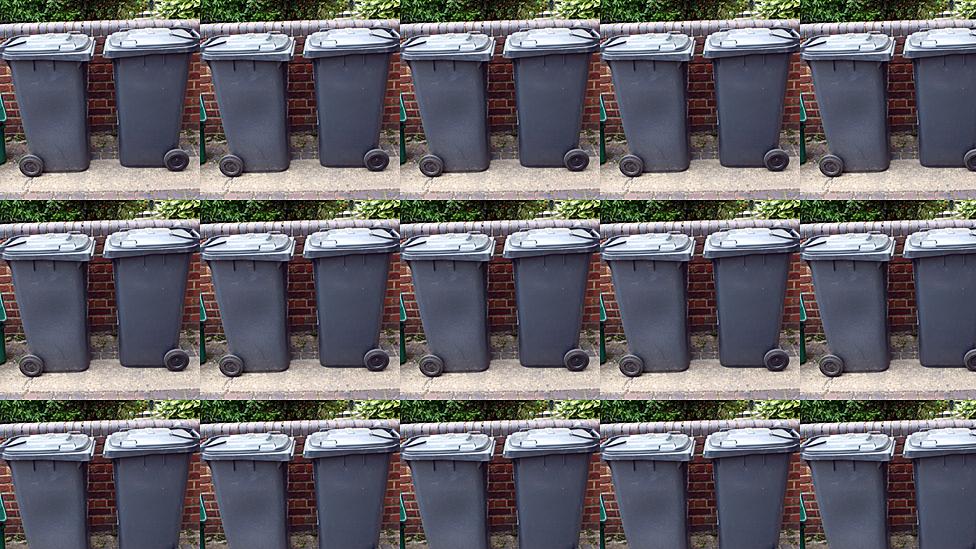
The council has declined a request for access to the thousands of bins it has in storage
At a spot somewhere in Dumfries and Galloway there is an unusual collection being kept.
The local authority has paid hundreds of thousands of pounds in recent years for the storage of hundreds of thousands of bins.
It recently admitted many of them will never be used for their original purpose.
The story started about 12 years ago when a new type of waste processing plant - unique in Scotland at the time - opened in Dumfries.
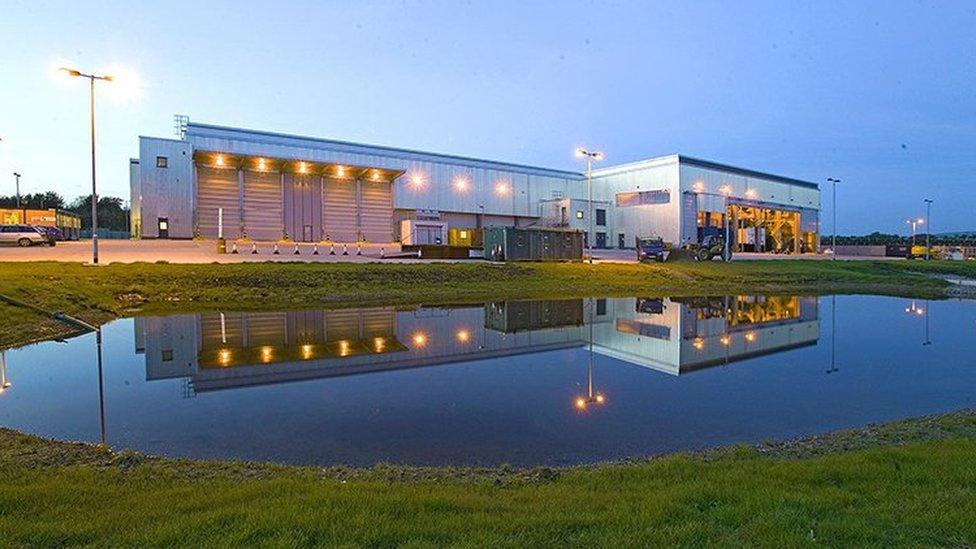
The Eco Deco waste treatment plant meant households needed only one bin
The Eco Deco project was aimed at helping meet recycling targets.
It took household waste from Dumfries and Galloway homes and shredded and dried it before separating out anything which could be reused.
It did that job so you didn't have to - sending only a small percentage of waste to landfill.
And, in the process, it meant the region's homeowners needed only one bin.
"Basically we have one dirty bin that is picked up at the kerbside and that is picked up weekly - rather than a whole selection of bins where the right materials must go in the right bin," said a spokesman for the council's environment department at the time.
"I believe this system is far more simple and represents value for money."
It put the area in a highly unusual position.
A study in 2011 found the council was one of just two in the UK able to collect a single bin.
However, a change was around the corner - and it would have a big impact.
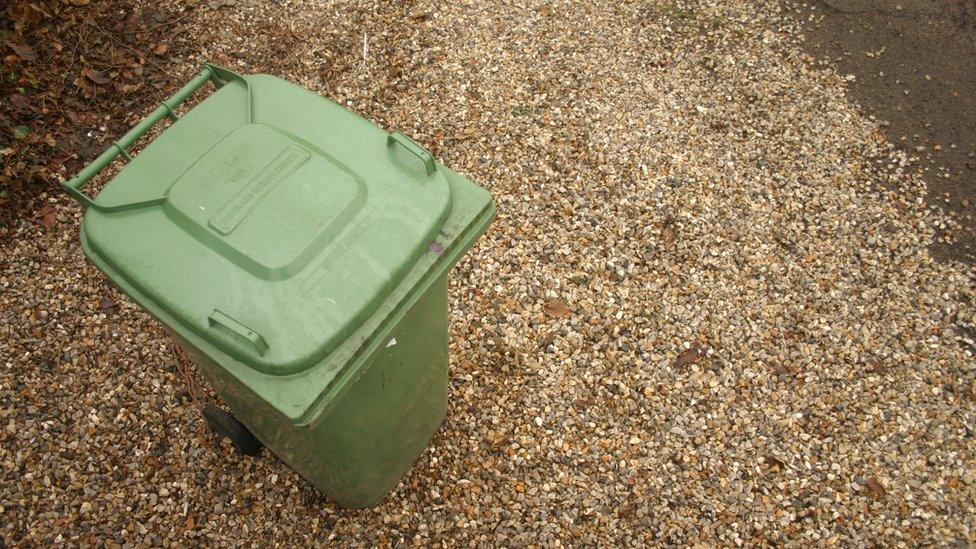
Changes in legislation prompted a change of system plan in Dumfries and Galloway
The Waste (Scotland) Regulations 2012 required the separate collection of paper, card, glass, metals and plastics for recycling - as well as food waste in most urban areas.
Dumfries and Galloway could no longer be a one-bin region.
A new plan was hatched to roll out five separate recycling containers to homes at a cost of millions of pounds.
"It is one of those things," the council told BBC Scotland in 2013.
"It is no big deal. Legislation changes in all the services that we provide in the council regularly - for improvement, to better ourselves and to look after the environment - for all the right reasons."
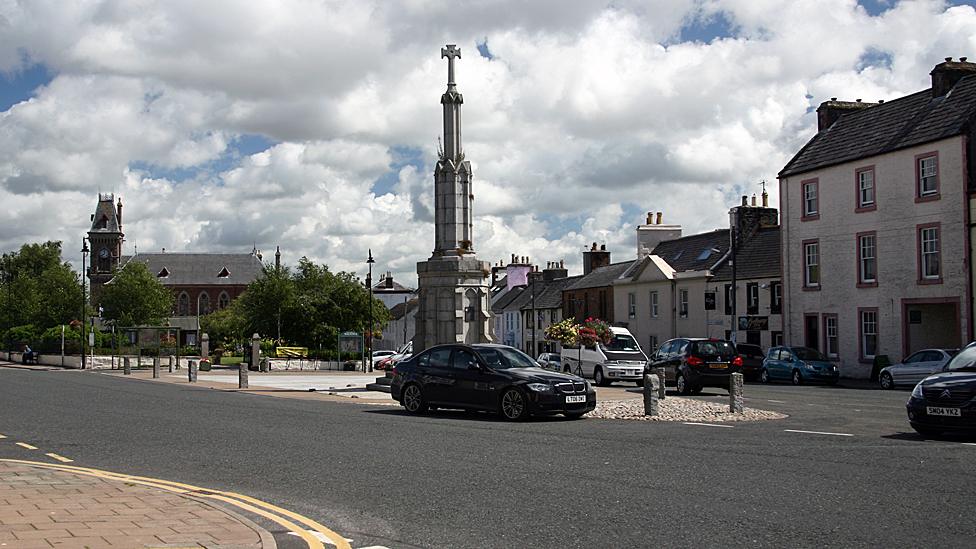
A multi-bin system was introduced in Wigtownshire but will not be extended to the whole region
The new system was introduced in Wigtownshire in 2014 - the historic county including the likes of Stranraer, Newton Stewart, Wigtown and Whithorn - with a view to extending it across the whole region.
More than 450,000 assorted bins, lids and nets were bought in anticipation of it being rolled out across the area.
They were even stamped with the Dumfries and Galloway Council logo ahead of their use.
Except that extension never happened.
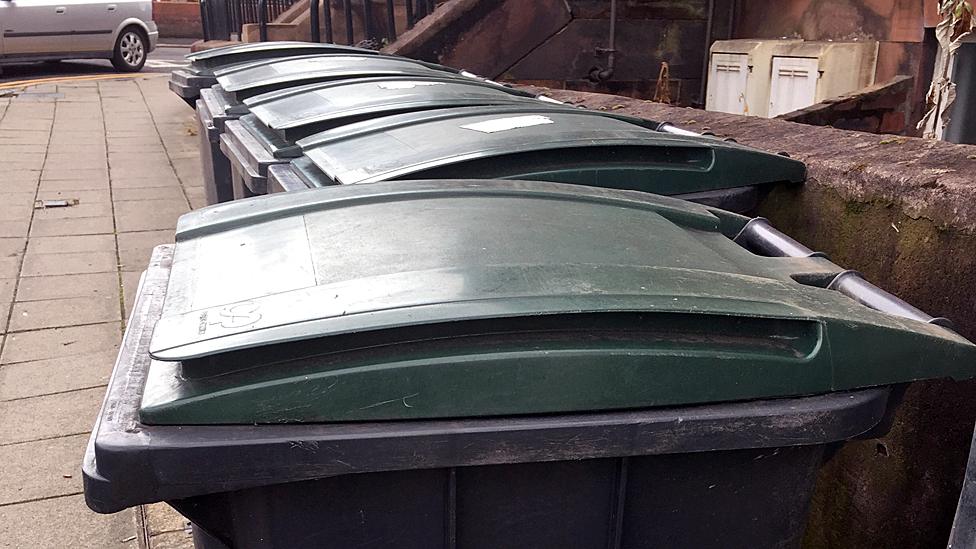
A new system is set to be introduced at a cost of millions
Uptake was greater than anticipated, staff overtime was required to cope and the cost to the council rose by hundreds of thousands of pounds.
Complaints piled up too.
BBC Scotland news website readers said the boxes were too flimsy, not fit for purpose and got blown away in the wind once emptied.
There were also health and safety issues for workers involved in collecting the new boxes.
The extension across the region was delayed and delayed until, after several years, it was decided to ditch it all together.
A new three wheelie bin system will be used instead.
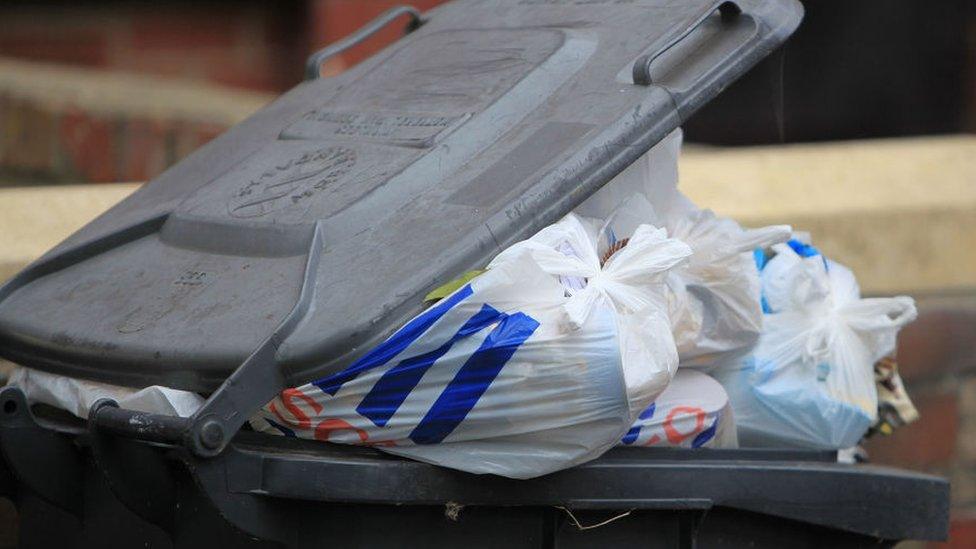
A new three wheelie bin system will be introduced in the region starting next summer
It means that tens of thousands of the containers bought for the ill-fated 2012 recycling scheme will never be used.
Some will be given out to households to collect glass to take to community collection points and smaller food caddies will also be required.
Options are being appraised for the remainder with one problem being the logo which has been stamped on the boxes meaning no other local authority could use them even if they wanted to.
The council has refused the BBC access to the storage site and also declined to provide a picture of the bins being kept there.
New bins
It has also not made anyone available for comment.
The local authority has, however, confirmed that another 150,000 new bins will be needed for its new system along with new vehicles for collection.
A price of £8.2m has been attached - with further investment levels yet to be revealed.
A region-wide rollout of the revised system is intended to begin next summer.
In the meantime, a decision will need to be reached on the fate of the unneeded bins still kept in storage.
- Published4 July 2019

- Published29 May 2019

- Published9 May 2019
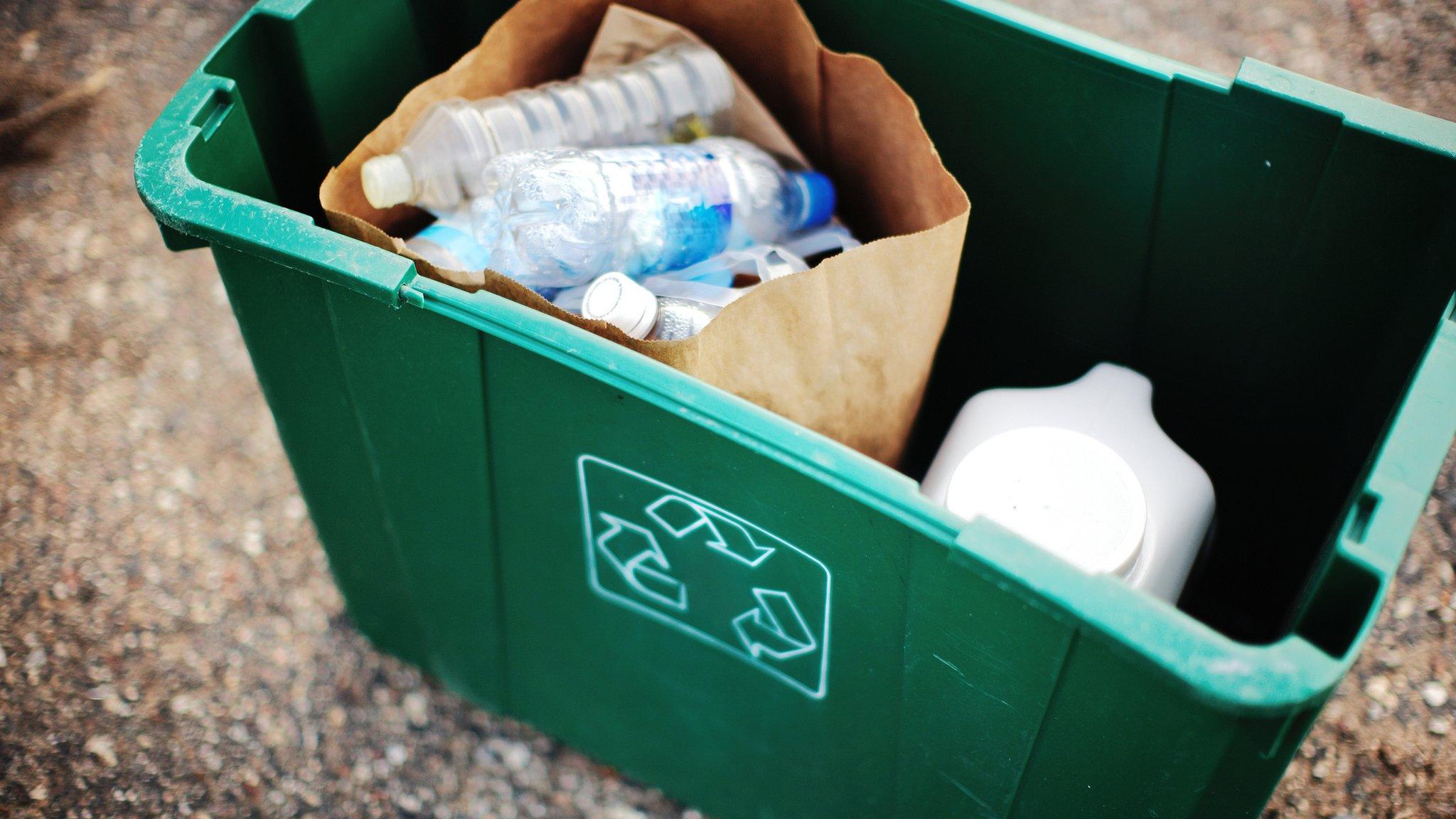
- Published3 May 2019

- Published16 June 2017
